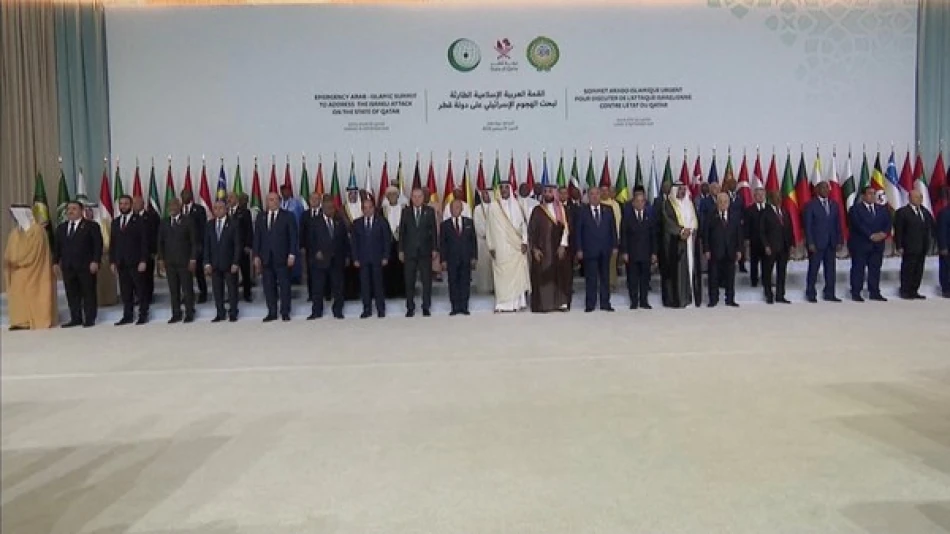
Qatari Emir Vows Resolute Response to Israeli Aggression
Qatar Calls Emergency Arab-Islamic Summit After Alleged Israeli Attack on Doha
Qatar's Emir Sheikh Tamim bin Hamad Al Thani convened an emergency Arab-Islamic summit in Doha, describing what he termed a "treacherous attack and cowardly terrorist act" by Israel on Qatari territory. The gathering of regional leaders marks a significant escalation in tensions as Qatar, a key mediator in Gaza ceasefire negotiations, positions itself as a direct target of Israeli aggression.
Diplomatic Mediation Under Fire
The timing of this alleged attack carries particular weight given Qatar's prominent role as an intermediary in Gaza peace talks over the past two years. Sheikh Tamim's accusations suggest Israel has effectively targeted the very nation attempting to broker an end to the conflict—a move that could fundamentally reshape regional diplomacy.
The Emir's assertion that Israel has exploited negotiations as "war tactics" while showing no genuine interest in recovering hostages represents a damning indictment of the peace process. This claim, if substantiated, would expose a calculated strategy to use diplomatic channels as cover for military objectives rather than genuine conflict resolution.
Regional Response and Legal Implications
Qatar's decision to invoke international law mechanisms signals a shift from behind-the-scenes diplomacy to public legal confrontation. The emergency summit brings together Arab and Islamic leaders at a moment when traditional mediation channels appear to have failed, potentially forcing regional powers to consider more direct responses.
Strategic Calculations
For Qatar, hosting this summit serves multiple purposes beyond immediate crisis response. The small but wealthy Gulf state has built its regional influence largely through diplomatic mediation and hosting international dialogue. An attack on Qatari soil—if confirmed—would represent not just a security breach but an assault on Qatar's carefully cultivated role as a neutral facilitator.
Implications for Regional Stability
The allegations raise serious questions about the sustainability of Qatar's mediation role in future Middle Eastern conflicts. If a mediating nation becomes a target, the fundamental principles of diplomatic immunity and neutral facilitation come under threat, potentially deterring other countries from offering similar services.
The summit's outcomes could determine whether the region moves toward coordinated diplomatic pressure, economic measures, or more direct forms of retaliation. Qatar's emphasis on international legal mechanisms suggests a preference for institutional responses over military escalation, though the participation of multiple regional powers leaves room for more aggressive options.
Broader Regional Dynamics
This development occurs against the backdrop of already strained relations between Israel and several Arab nations, despite recent normalization agreements with some Gulf states. Qatar's position as both a U.S. ally and Hamas interlocutor has long created complex diplomatic dynamics that this incident threatens to further complicate.
The emergency summit represents a test of Arab and Islamic unity at a time when regional powers have often pursued divergent policies toward Israel and Palestinian issues. The response to Qatar's call for solidarity will indicate whether shared concerns about sovereignty violations can overcome existing political divisions.
Most Viewed News

 Layla Al Mansoori
Layla Al Mansoori






